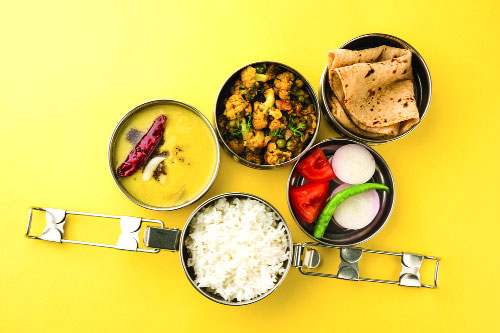Junho J Jeong talks about how actor Irrfan Khan’s The Lunchbox captured the emotions and sentiments of childhood aptly
We lost two great Bollywood actors this week. One of them brought back memories of lunchboxes.
Irrfan Khan played the lead in a film by the same name — The Lunchbox. In the film, like many other office-goers in the city of Mumbai, he’d consume food cooked and delivered to his office by the famous dabbawalas. For him, it used to be an everyday, monotonous meal, packed by a local chef until the lunchbox gets mixed up by delivery person, which changes everything. It connected his tastebuds and his destiny to a lady homemaker who’d recently begun cooking lunch for her husband with some tips from her neighbour, and of course, dollops of love. It was then that Irrfan ji’s character started waiting for his lunchbox to arrive and opens it with excitement while expecting something new everyday.
The film took me back to my childhood days when other kids and I would carry our lunchboxes to school, unsure of what treasure was hidden inside them. Lunch was a time for discovery. Sometimes, it was joyful, sometimes disappointing. But the fun of opening the box in the company of friends was thrilling.
As we grew up and a busy lifestyle took precedence, the humble lunchbox disappeared from our lives. So when I came to India, I was pleasantly surprised to see many of my Indian colleagues carrying a personal lunchbox to office, taking it to the cafeteria during the lunch-hour, heating up the food in the smart ovens and serving themselves. I would often be reminded of the taste of the food, which my mother cooked — and all the secret recipes that made it so delicious.
Like many of our colleagues from Korea, I would also wonder about the hundreds of lunchboxes of different shapes, sizes and colours, that lined the walls of the office building as their owners went out for a quick walk post lunch, especially during the winter months. We were intrigued as much as we were touched by this act of love in Indian families.
When someone recommended this film as a “must-watch,” our Korean colleagues decided to act on the tip. Some went to the theatres, some watched it at home, while some others organised special screenings for groups of friends. It was one of the most amazing films I had watched and certainly the best Bollywood one. I also introduced it to my wife when she joined me in Delhi after a few months and several of our friends.
As life’s biggest secrets are always unveiled at the theatre, my first Indian film, The Lunchbox showed me how an Indian tiffin is prepared at home — with love — handed over to the dabbawalas, transported on local trains to far-off offices, and delivered in an efficient manner. The journey of those lunchboxes and people around them taught me how life moves here and reaches its destination — through the beautiful chaos of the metros.
South Korea and India share similar family values. Maybe that is why we love watching Bollywood films, while Korean movies, K-serials and K-pop are gaining popularity with millennials here. While watching the film, we were also reminded of our loved ones back home and our parents. We could understand the ethos and the bonding that exist in Indian families. We also got to know more about the interesting Indian cuisine and its range of masalas (spices).
The characters in the film were very real and the actors played them efficiently. I remember how Irrfan ji’s character would wait for his lunchbox and later clean it up. He was so natural!
Hearing the news of his demise was shocking. I was very sad. I have watched Irrfan ji’s performances in Hollywood films like Slumdog Millionaire and Life of Pi. He was not just a great actor but also a great example of the “genius Indian” and the “global Indian”.
His films will remain etched in my memory. What The Lunchbox taught me was that the box carries the same ingredients of care and expectation whether it’s made in India or Korea. The only difference is — in India, your lunchbox will find you.
(The author been working in Samsung, India for more than five years now. He loves walking the streets of Delhi to learn more about the flavours of India and to understand life and people here. He still can’t speak in Hindi or any other local language, though he can say “theek hai” (alright) easily.)


























